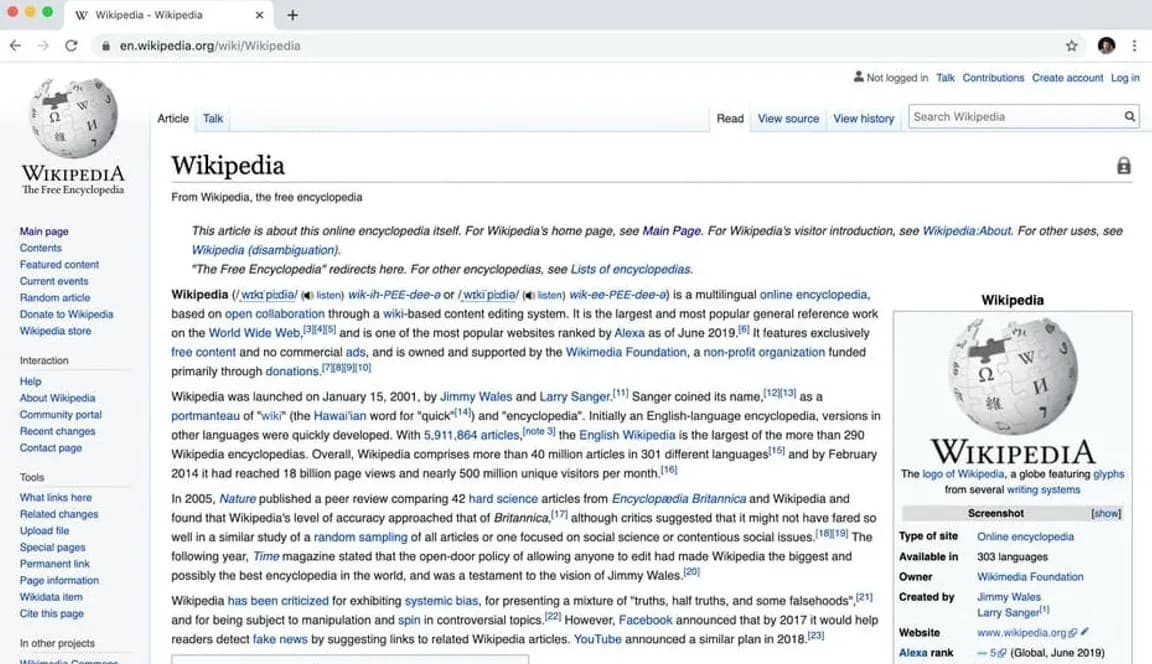July 23, 2025
Blog PostWhat is a Wiki?

A wiki is a powerful tool designed for collaborative information sharing, functioning as a collection of web pages powered by specialized wiki software that allows users to easily create, edit, link, and structure content together. Unlike traditional web pages, wikis use a simple markup language and hyperlinks, making them accessible even to users with limited technical knowledge. Wikis range from internal company knowledge hubs to global public platforms, such as Wikipedia, demonstrating versatility across both corporate and public settings. This guide explains what a wiki is, how it functions, the various types available, and their key benefits for information management and dissemination.

How Do Wikis Work?
Wikis rely on specialized software, such as MediaWiki, DokuWiki, or XWiki. These platforms allow users to edit pages using either simple markup languages or rich-text editors. Wiki pages are interconnected through internal backlinks, categories, tags, and other structural elements, facilitating easy navigation and content discovery.
Types of Wikis
Internal Wikis
Internal wikis are used within an organization to store sensitive information, company policies, technical documentation, meeting notes, and more. They are secure and accessible only to employees, promoting efficient information sharing and collaboration.
External Wikis
Public-facing wikis provide information to external audiences. They are commonly used for open-source projects, customer support documentation, and community engagement, offering a transparent and accessible platform for information dissemination.
Benefits of Using a Wiki
Centralized Information
Wikis serve as a central repository for all organizational knowledge, making it easy for employees to find and access information. This centralization reduces the time spent searching for information and improves productivity.
Collaboration and Knowledge Sharing
Wikis encourage collaboration by allowing multiple users to contribute and edit content. This collaborative approach helps capture the collective knowledge of the organization, preserving valuable insights and expertise.
Ease of Use and Accessibility
Wikis use simple language and markup, making them accessible to all users regardless of their technical skills. This ease of use ensures that information can be quickly updated and maintained.
Flexibility and Adaptability
Wikis can be easily adapted to fit the specific needs of an organization. Whether it's organizing project documentation, creating an employee handbook, or maintaining a knowledge base, wikis offer the flexibility to structure information in a way that makes sense for users.
Enhanced Onboarding and Training
For new employees, wikis provide a comprehensive source of information, facilitating faster onboarding and reducing the learning curve. Training materials, FAQs, and process documentation can be readily accessed, helping new hires get up to speed quickly.
Document Management
A wiki can be an effective tool for document control by providing a centralized platform where documents can be created, edited, and stored in a collaborative environment. This ensures that all team members have access to the most current versions of documents, reducing the risk of outdated or conflicting information. Additionally, wikis offer version control features that track changes made to documents, allowing users to revert to previous versions if necessary.
How to Create a Wiki
- Choose the Type of Wiki: Determine whether you need an internal or external wiki based on your goals. Internal wikis are ideal for confidential company information, while external wikis are suited for public information sharing.
- Select the Right Platform: There are several wiki software options available, ranging from open-source solutions like MediaWiki (the software behind Wikipedia) to premium tools like Tettra and Confluence. Choose a platform that fits your needs and budget.
- Set Up Security and Guidelines: Establish security protocols to protect sensitive information and set community guidelines to ensure the quality and relevance of the content.
- Add Content and Structure: Start by adding the most important and frequently used information. Organize content using categories, tags, and internal links to make it easy to navigate.
- Assign Roles and Permissions: Define who can edit and contribute to the wiki. Assign roles and permissions to ensure that content is managed appropriately and that only authorized users can make significant changes.
Getting Started with a Wiki
There are several ways to get started with a wiki, as many software options are available. One of the most popular platforms is MediaWiki, the same software that powers Wikipedia, one of the world's most visited websites. You can begin by experimenting with MediaWiki through a local installation, for which we offer a detailed step-by-step blog guide. Additionally, you can install MediaWiki on a server or opt for a professional MediaWiki company to set it up and host it for you, ensuring a smooth and hassle-free experience. Once you have set up your wiki you can view our introduction to MediaWiki guide.
Conclusion
Wikis are versatile tools that facilitate information sharing and collaboration within organizations and communities. By centralizing knowledge, enhancing accessibility, and promoting collaborative content creation, wikis can significantly improve productivity and knowledge retention. However, it is important to implement proper guidelines and regular reviews to overcome the challenges associated with maintaining a wiki. You can explore our other blogs for detailed discussions on various topics related to MediaWiki and how to use it successfully.
Reach out for a free, no-obligation consultation call to talk about your wiki customization, hosting, and maintenance needs. WikiTeq will guide you through every step of the process.